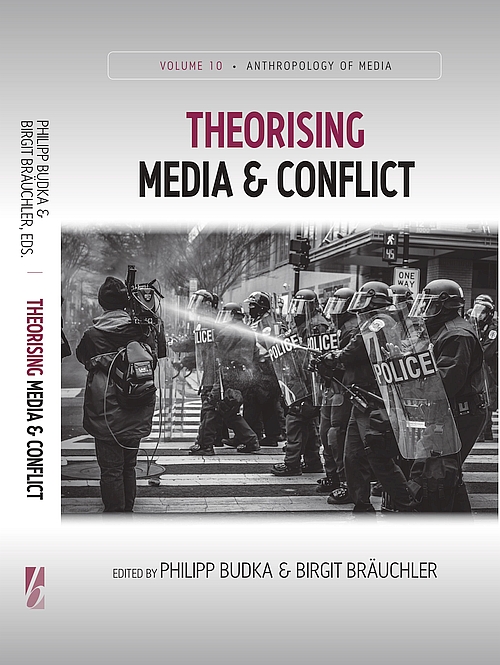Budka, P., & Bräuchler, B. (Eds.). (2020). Theorising media and conflict. Anthropology of Media. New York & Oxford: Berghahn Books.
Theorising Media and Conflict brings together anthropologists as well as media and communication scholars to collectively address the elusive and complex relationship between media and conflict. Through epistemological and methodological reflections and the analyses of various case studies from around the globe, this volume provides evidence for the co-constitutiveness of media and conflict and contributes to their consolidation as a distinct area of scholarship. Practitioners, policymakers, students and scholars who wish to understand the lived realities and dynamics of contemporary conflicts will find this book invaluable.
This is the second “Theorising media and …” book in Berghahn’s Anthropology of Media series. The aim of the series is to place media anthropology at the forefront of theoretical advances in both anthropology and media and communication studies.
Table of Contents
Preface
Philipp Budka
PART I: KEY DEBATES
Introduction. Anthropological Perspectives on Theorising Media and Conflict
Birgit Bräuchler and Philipp Budka
Chapter 1. Transforming Media and Conflict Research
Nicole Stremlau
PART II: WITNESSING CONFLICT
Chapter 2. Just a ‘Stupid Reflex’? Digital Witnessing of the Charlie Hebdo Attacks and the Mediation of Conflict
Johanna Sumiala, Minttu Tikka and Katja Valaskivi
Chapter 3. The Ambivalent Aesthetics and Perception of Mobile Phone Videos: A (De-)Escalating Factor for the Syrian Conflict
Mareike Meis
